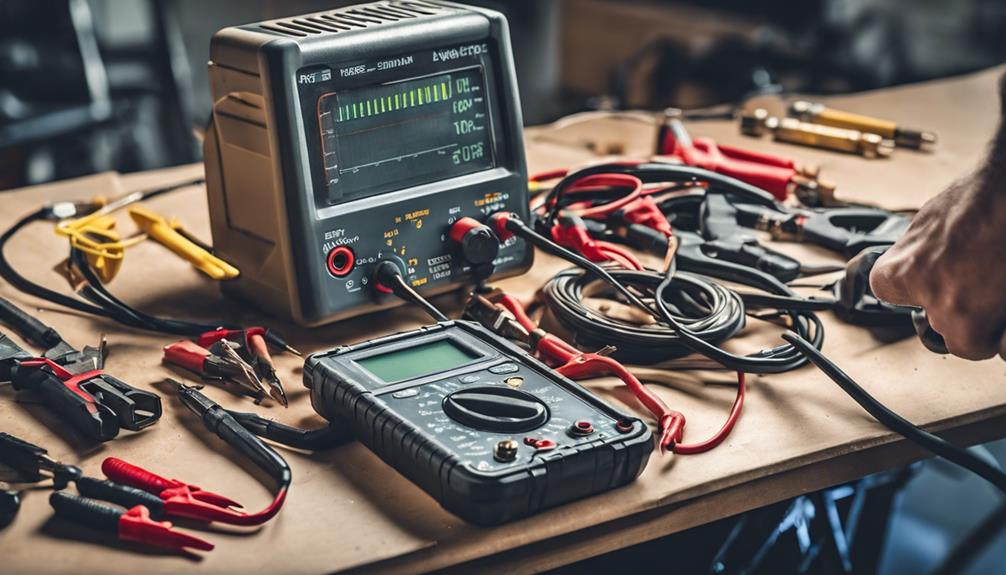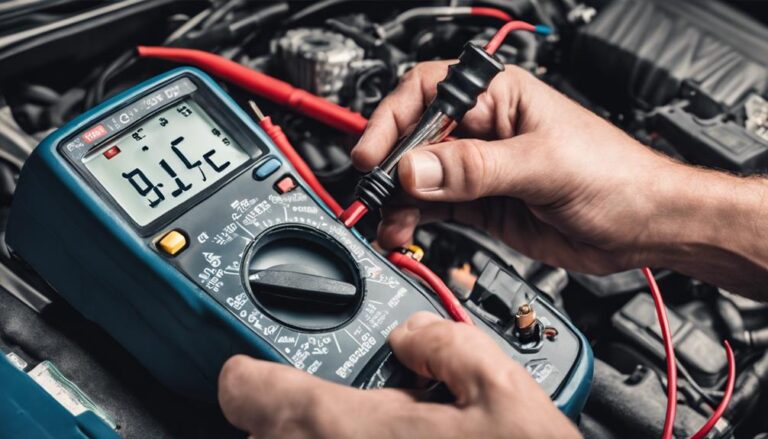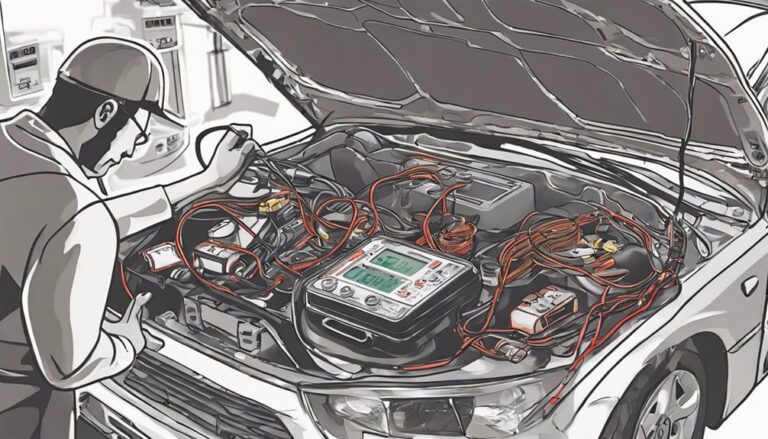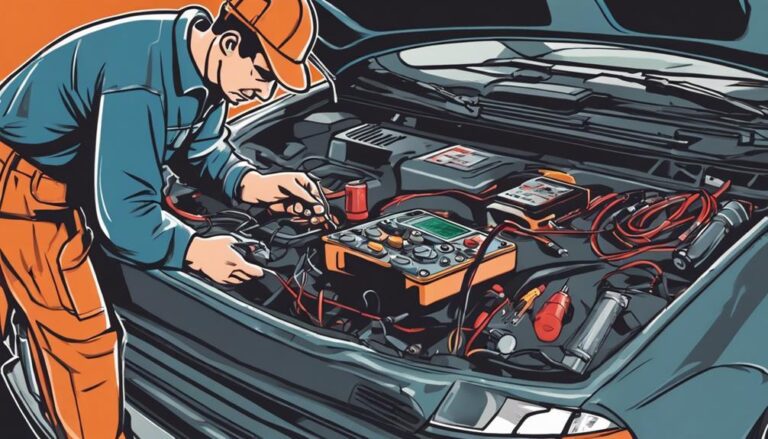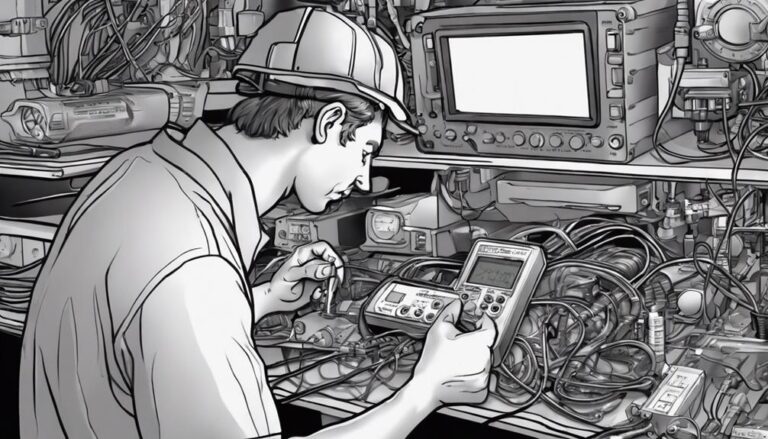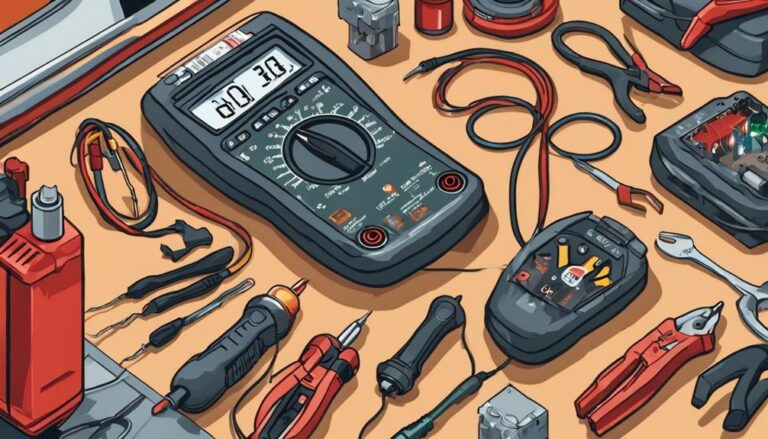3 Best Tips for Car Electrical Component Issues
Did you know that up to 80% of car electrical issues are related to wiring or connection problems?
When it comes to troubleshooting these issues, focusing on proper wiring, common problem recognition, and effective solutions is crucial. By implementing the three best tips for car electrical component issues, you can ensure a smoother driving experience and avoid costly repairs down the road.
So, what are these tips, and how can they help you maintain your vehicle's electrical system in top condition?
Key Takeaways
- Regular monitoring and diagnostics prevent severe electrical issues.
- Proper testing of battery and alternator ensures a reliable charging system.
- Timely troubleshooting of fuse and wiring problems maintains electrical function.
- Addressing wiring issues promptly prevents costly repairs and component failures.
Identifying Common Electrical Symptoms
To accurately identify common electrical symptoms in your car, start by paying close attention to any dimming or flickering dashboard lights, which can often indicate underlying issues with critical components like the alternator or battery. Dashboard diagnostics are crucial in troubleshooting electrical problems.
If you notice your lights dimming when you turn up the radio or use other electrical accessories, it might be time to check the voltage regulator or consider alternator maintenance. A failing alternator can lead to a host of issues, including dimming lights, dead batteries, and even stalling. By proactively addressing these dashboard warning signs, you can prevent more severe problems down the road.
Regularly monitoring the performance of your vehicle's electrical system through dashboard diagnostics can help you catch potential issues early on. Understanding the significance of dimming lights and promptly addressing them with voltage regulator or alternator maintenance can save you from costly repairs and inconvenient breakdowns. Stay vigilant in your observations and proactive in your maintenance to keep your car running smoothly.
Testing Battery and Alternator
Ensure you have a multimeter handy to accurately test the battery and alternator voltage levels for optimal performance evaluation. A healthy battery typically reads 12.6 volts when the engine is off and between 13.8-14.7 volts when running. Testing the alternator output is crucial to confirm it's charging the battery within the correct range.
Load testing the battery can unveil its capacity and overall health, providing insights into its maintenance needs. By following proper testing procedures, you can accurately identify any issues with the battery or alternator. Understanding voltage fluctuations is key to diagnosing potential problems within the charging system.
Diagnostic tests play a vital role in assessing the overall health of your car's electrical components. Regular maintenance and monitoring of voltage levels are essential for ensuring a reliable and efficient electrical system in your vehicle. Mastering these testing methods empowers you to proactively address any battery or alternator issues before they escalate.
Troubleshooting Fuse and Wiring Issues
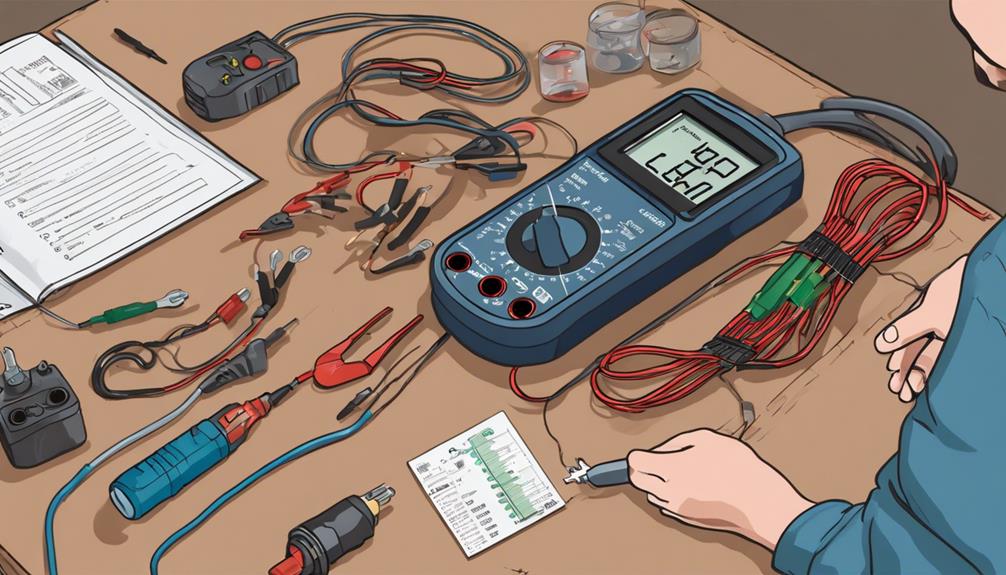
Identify blown fuses and damaged wiring promptly to effectively troubleshoot electrical issues in your car. When dealing with fuse problems, always use the correct amp rating for replacements to safeguard the electrical systems. Similarly, for wiring issues, timely inspection and repair are crucial to prevent further complications and ensure proper electrical connectivity. Testing circuits with a multimeter is a reliable method to pinpoint faults accurately and troubleshoot non-working electrical components. Using the appropriate type and rating of fuses is essential to uphold the integrity of the electrical system and prevent potential damage. Additionally, addressing concerns such as repairing frayed wires, diagnosing short circuits, and methodically inspecting for wiring damage are vital steps to maintain the functionality of your car's electrical system.
| Fuse Replacement | Wiring Repair |
|---|---|
| Use correct amp rating | Prompt inspection and repair |
| Prevent damage | Ensure electrical connectivity |
| Maintain system integrity | Diagnose short circuits |
| Avoid further issues | Systematically inspect for damage |
Frequently Asked Questions
What to Do if Your Car Is Having Electrical Problems?
If your car is having electrical problems, start with DIY troubleshooting like checking battery voltage and inspecting fuses. Consider preventive maintenance and electrical upgrades. If issues persist, seek professional help for detailed diagnostics and repairs.
What Is the Most Common Cause of Electrical Problems in Cars?
Poor connections cause most car electrical issues. Corrosion, loose terminals, and damaged wires are common culprits. Troubleshooting involves checking grounds and avoiding circuit overloads. Understanding wiring importance prevents frequent problems. Ensure proper connections for smooth operation.
How Do I Find an Electrical Fault in My Car?
To find an electrical fault in your car, start by testing circuits with a multimeter and checking for blown fuses. Inspect wiring for damage and tighten loose connections. If needed, use diagnostic tools and seek professional help for accurate diagnosis.
Are Electrical Problems in Cars Expensive to Fix?
Fixing car electrical problems can be pricey. Costs vary: $342-$352 for a dead battery, $608-$790 for an alternator, $428-$581 for a starter, up to $2000 for wiring. DIY solutions can help cut expenses.
Conclusion
You have now learned the importance of proper wiring, common electrical problem identification, and effective troubleshooting when dealing with car electrical component issues.
Remember, 80% of electrical problems in vehicles are due to poor connections and grounding issues.
By following these tips and staying proactive in your maintenance efforts, you can prevent costly failures and keep your vehicle running smoothly.
Stay vigilant and address any issues promptly to ensure a reliable electrical system in your car.

